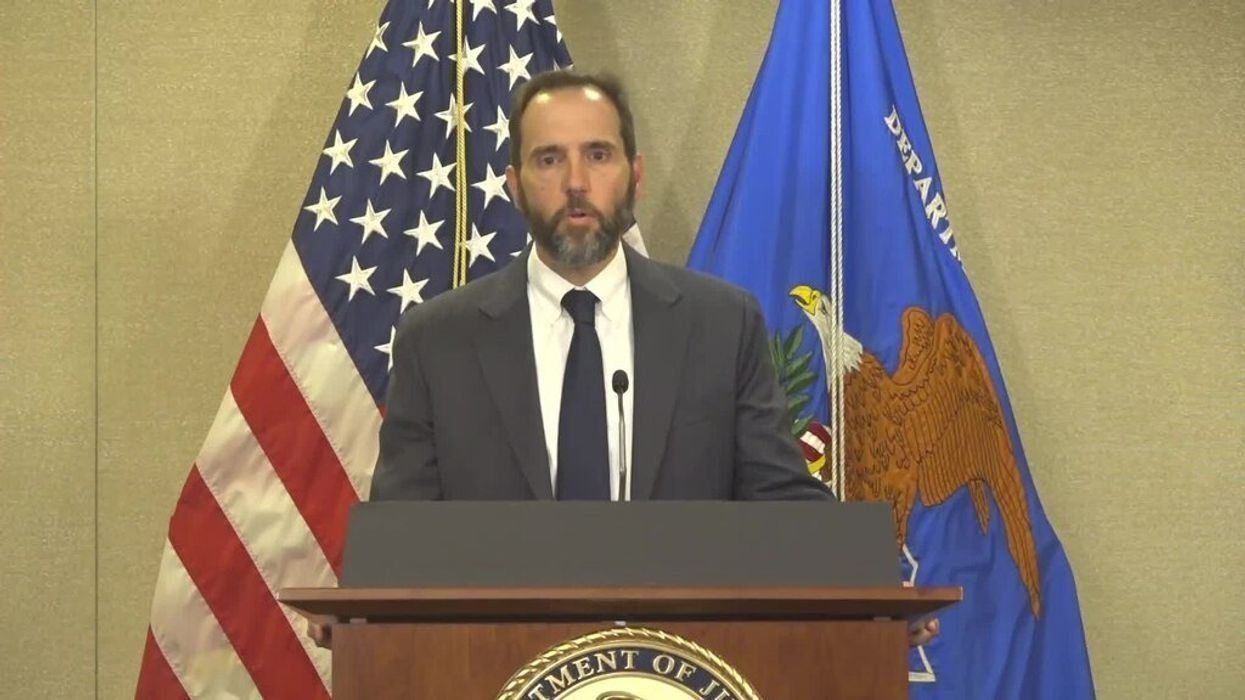How SCOTUS 'all but shut down' Jack Smith’s Trump election indictment: ex-federal prosecutor


After the U.S. Supreme Court handed down its 6-3 ruling on Donald Trump's immunity argument, many legal experts weighed in on the effect that the decision will have on special counsel Jack Smith's election interference indictment against the former president.
The High Court's GOP-appointed majority, in Trump v. the United States, ruled that a president's "official" acts in office are immune to prosecution, while "unofficial" acts are not. Now, Judge Tanya Chutkan — the Barack Obama appointee assigned to the case — must sort through which parts of Smith's indictment qualify as "official" and which are "unofficial."
In an article published by the conservative website The Bulwark on July 2, law professor and former federal prosecutor Kimberly Wehle is vehemently critical of the High Court's immunity ruling and laments that six GOP-appointed justices have "all but shut down" Smith's election interference case.
READ MORE: Calls grow for Dems to 'pack the Court' after SCOTUS immunity ruling
"Everything in the indictment concerning Trump's attempts to use the Department of Justice to back up his election denial and to support his attempt to change its outcome is now likely inadmissible," Wehle argues. "Because instructing the DOJ to do certain things and hiring and firing its leadership are core constitutional functions of the presidency, it's impossible, according to the Court's reasoning, to second-guess whether the president used those powers illegally — or at least if he does, he can't be indicted for it."
Wehle notes that in response to the High Court's ruling, "Trump's lawyers will argue" that "it's all official conduct," while Smith's team at the U.S. Department of Justice (DOJ) "will argue the contrary."
According to the former federal prosecutor, the ruling also has major implications for the three other criminal indictments Trump is facing: Smith's Mar-a-Lago documents prosecution, Fulton County, Georgia District Attorney Fani Willis' election interference/RICO case, and Manhattan District Attorney Alvin Bragg Jr.'s hush money/falsified business records case.
"The same process will happen in the already-stalled prosecution in Florida for Trump's alleged taking of classified documents from the White House and obstructing the FBI's attempts to get them back," Wehle explains. "The packing up of boxes happened while he was president, so Judge Aileen Cannon will have to slice and dice that indictment as well — which she will undoubtedly relish, as she's been making up reasons to delay the trial indefinitely already. In the Georgia election interference case, the state court judges will likewise have to decide what parts of Trump's conduct must be cut out of the case because the Supreme Court resolved this dispute under the U.S. Constitution, which is the law of the land, including for state court judges and state prosecutions."
READ MORE: Sonia Sotomayor: Supreme Court just gave presidents power to assassinate political rivals
Wehle continues, "Even the 'hush money' trial…. that recently concluded in Manhattan with Trump's conviction on 34 felony counts could be affected by the Supreme Court's ruling. Trump paid some of the reimbursement checks to Michael Cohen directly from the Oval Office, so it's no surprise that Trump's lawyers, on Monday, (July 1), asked the judge in the case if they could file a motion calling for the verdict to be set aside; this comes a week before his scheduled sentencing."
READ MORE: Trump seeks to have hush money case tossed citing presidential immunity ruling: report
Kimberly Wehle's full article for The Bulwark is available at this link.